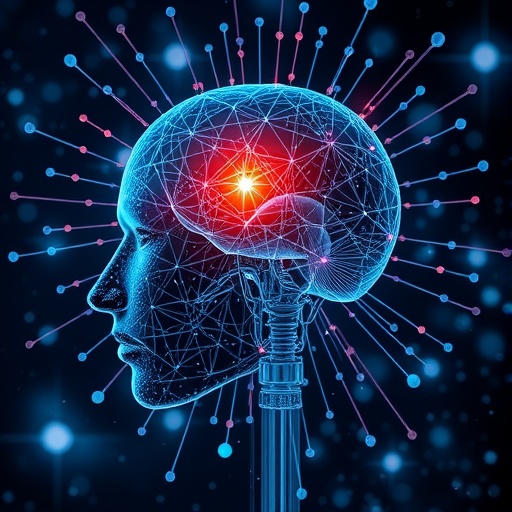As scientific advancement in artificial intelligence and neurotechnology surges forward, the urgent quest to understand consciousness has taken on newfound significance. Leading researchers emphasize that the accelerating pace of technology risks outstripping our current understanding of one of the most profound mysteries: how subjective experience emerges from biological substrates. This challenge, once primarily philosophical, now demands rigorous scientific inquiry due to its vast ethical and societal ramifications.
The recent comprehensive review published in Frontiers in Science highlights the pressing need to decode the mechanisms underlying consciousness. Understanding how consciousness arises could eventually enable the development of empirical tests to detect awareness not only in humans but also in novel entities such as AI systems and synthetically grown brain organoids. Scholars warn that failing to grasp these underpinnings risks grave ethical consequences, especially if we inadvertently create conscious machinery without frameworks for their moral consideration.
Consciousness remains elusive despite decades of intensive neuroscientific investigation. While neural correlates related to consciousness have been mapped to various brain regions and processes, consensus is lacking on which are necessary or sufficient for subjective experience. Some experts suggest this conceptual impasse may reflect fundamental limits in current methodologies or theoretical biases, urging alternative approaches focused on phenomenology—the qualitative feel of consciousness itself—in addition to functional characterization.
Crucially, epistemological clarity in consciousness science could redefine how we treat patients with disorders of consciousness. Recent applications of theories such as integrated information and global workspace have begun revealing signs of residual awareness in individuals diagnosed with unresponsive wakefulness syndrome. Refining these approaches promises to revolutionize clinical assessment in coma, advanced dementia, and anesthetic states, facilitating informed decisions on treatment and end-of-life care that respect the patient’s subjective experience.
Furthermore, an improved grasp of consciousness biology could transform psychiatric treatment by bridging mechanistic insights and emotional experience. Mental health conditions like depression, anxiety, and schizophrenia involve complex alterations in subjective states that remain poorly captured by animal models. A scientifically validated framework describing consciousness’s neural instantiation may pave the way for novel therapeutics targeting the intricate interplay between neural circuits and conscious emotion.
Beyond medicine, consciousness science provokes a profound reassessment of our ethical responsibilities toward non-human animals. Determining which species or synthetic systems qualify as sentient challenges longstanding assumptions underpinning animal research, agriculture, and conservation policies. As brain organoids and biologically derived entities emerge, ethical frameworks must adapt to protect potentially conscious life forms, necessitating rigorous evidence-based sentience tests to guide moral and legal decision-making.
The law stands poised for transformation through insights into conscious and unconscious mechanisms driving behavior. The traditional legal doctrine of mens rea—the “guilty mind” necessary for criminal intent—is increasingly questioned in light of neuroscience revealing vast unconscious influences on decisions. As consciousness science delineates the boundaries of awareness and volition, juridical systems may need fundamental revisions to issues of responsibility, culpability, and free will.
Advanced neurotechnologies, including brain–computer interfaces and machine learning architectures, raise the provocative possibility of engineered consciousness or human-like awareness beyond biological substrates. Debates persist about whether computational substrates alone can generate phenomenal experience or whether specific biological conditions are indispensable. Nonetheless, even AI systems that simulate consciousness pose ethical dilemmas regarding their treatment, rights, and impacts on society, underscoring the urgency of scientific clarity.
To overcome current theoretical impasses, the authors advocate a coordinated, interdisciplinary approach emphasizing adversarial collaborations in consciousness research. Such team science seeks to pit rival models, for example global workspace versus integrated information theories, against each other in carefully designed experiments with shared rigor. This methodological pluralism aims to break down siloed perspectives, challenge entrenched assumptions, and accelerate progress.
Understanding consciousness also requires balancing the objective study of neural functions with phenomenology—the lived qualities unique to conscious experience. By integrating subjective reports, comparative studies across species, and synthetic models, researchers aspire to build a comprehensive account that spans third-person measurements and first-person experience. This holistic approach is seen as essential for tackling the fundamental enigma consciousness presents.
As consciousness science advances, society must prepare for its profound consequences. Improved diagnostic tools might shift medical practices, revealing awareness where none was previously suspected. Ethical protocols may evolve in research, animal welfare, and AI development. Legal systems could be transformed as new findings challenge concepts of personal responsibility. Neurotechnologies might enable modulating or even inducing consciousness, raising existential questions about identity and personhood.
The pursuit of consciousness understanding thus presents both an extraordinary scientific challenge and a profound ethical imperative. The frontier lies not only in decoding brain activity but also in grasping the subjective essence of experience itself. As Prof Axel Cleeremans from Université Libre de Bruxelles warns, should humanity inadvertently create conscious entities without due foresight, we face “immense ethical challenges and even existential risk.”
Ultimately, consciousness science promises to reshape our self-conception and relationship with technology, biology, and the natural world. It strikes at the core of human identity and informs how we coexist with new forms of intelligence and life. As co-author Prof Anil Seth of the University of Sussex notes, the question is ancient yet more urgent now than ever before, demanding collaborative, transparent, and rigorous scientific efforts to illuminate one of the deepest secrets of existence.
Subject of Research: Not applicable
Article Title: Consciousness science: where are we, where are we going, and what if we get there?
News Publication Date: 30 October 2025
Web References: http://dx.doi.org/10.3389/fsci.2025.1546279
Keywords: Consciousness, Cognitive psychology, Cognition, Human thought, Animal science, Animal psychology, Artificial intelligence, Artificial consciousness, Machine learning, Deep learning, Coma, Mental health, Medical ethics, Legal issues, Artificial neural networks




